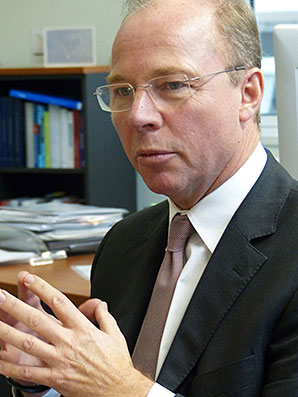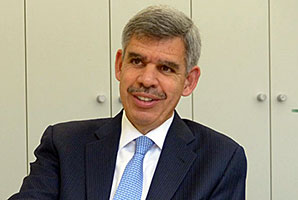Do we really have a worldwide inequality problem?
Michael Heise: No, on a global scale we fortunately do see a reduction of inequality. What we call the middle wealth class grew by 500 million people over the past 13 years, mainly in the Asian markets. According to the United Nations these are people with gross financial assets from 5,800 to 33,000 US dollars. This rise in prosperity has to be taken into consideration when we discuss inequality.
Mohamed El-Erian: We have an interesting contrast here. Millions and millions of people have moved up the ladder and out of poverty in many developing countries, and most notably in China. So, on a global scale, there has been a reduction in inequality due mainly to cross-country convergence from the lower end of the world income ladder. That is a good thing. But if you look at inequality within countries, you get a different picture. Whether in the US, Brazil or China: there has been a significant increase in both income and wealth inequality, and so much so that it is now affecting access to equal opportunities. The minute you start talking about opportunities you start making it a much deeper problem and harder to solve. Globally, inequality has come down, but nationally it has gone up to worrisome levels.
Why does society have to face the problem?
Heise: It has to address the problem because if we don’t, social cohesion is at risk. That is a danger for industrialized and developing countries alike. In recent times we have seen social upheavals and conflicts where poverty played a major role.
El-Erian: The topic has evolved from being a moral and ethical issue to becoming also political and a threat to economic wellbeing. Meanwhile, the drivers of inequality have expanded to include cyclical as well as structural and secular contributors. And the outcome has been attention-grapping. According to recent data from the Federal Reserve Bank, all of the incremental income gains in the United States over the last few years have gone to the top three percent of the population.

